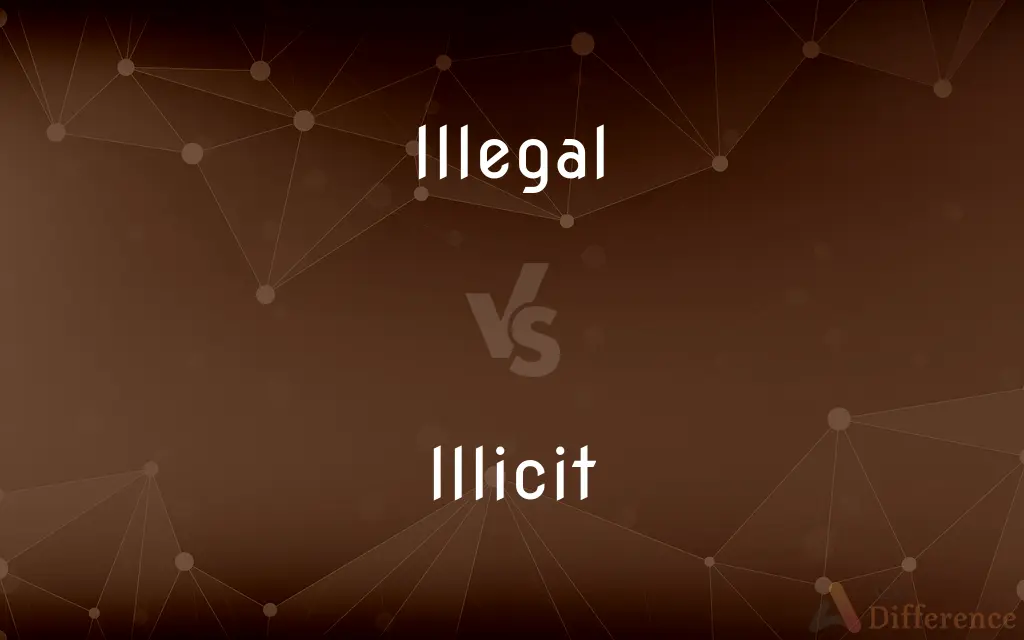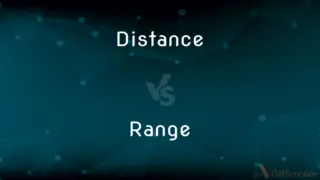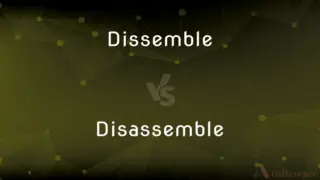Illegal vs. Illicit — What's the Difference?
Edited by Tayyaba Rehman — By Fiza Rafique — Updated on October 1, 2023
Illegal refers to actions prohibited by law, while illicit often connotes actions that are forbidden or disapproved of by societal norms or customs. Both indicate something not allowed, but for different reasons.

Difference Between Illegal and Illicit
Table of Contents
ADVERTISEMENT
Key Differences
Illegal and Illicit are terms that often convey the idea of something not being allowed, but they differ in context and usage. The term "Illegal" straightforwardly pertains to actions, objects, or circumstances that breach the established laws. For example, driving without a license is illegal because it contravenes the law.
Illicit, on the other hand, has a broader implication, capturing actions that may not just violate legal standards but also societal norms or moral standards. For instance, illicit affairs might not be against the law, but they go against societal or moral expectations. While many illicit activities can also be illegal, not all are.
Further dissecting the nuances, "illegal" often has more formal and tangible repercussions, typically involving penalties, fines, or other legal consequences. Conversely, engaging in illicit activities may lead to societal disdain or moral disapproval, even if no legal action ensues.
In essence, while both illegal and illicit signal prohibitions, the former is strictly within the realm of law, and the latter reaches beyond, touching upon moral and societal boundaries.
Comparison Chart
Definition
Prohibited by law
Forbidden by societal norms or customs
ADVERTISEMENT
Repercussions
Legal consequences (fines, penalties)
Societal or moral disapproval
Scope
Strictly legal
Broader (can be moral, societal, or legal)
Nature
Tangible, clear-cut boundaries
May have abstract or vague boundaries
Examples
Illegal parking, illegal drugs
Illicit love affair, illicit trade (which can be illegal)
Compare with Definitions
Illegal
Not allowed or authorized by the established rules or laws.
The sale of illegal substances has consequences.
Illicit
Disapproved of or not permitted for moral or ethical reasons.
The novel described the illicit affairs of the aristocracy.
Illegal
Not recognized or sanctioned by official authority.
He was arrested for illegal possession of firearms.
Illicit
Involving activities that are not morally acceptable.
He was involved in illicit dealings across the border.
Illegal
Lacking legal validity or enforceability.
The contract was deemed illegal by the judge.
Illicit
Not sanctioned by custom or law.
Illicit drugs are both socially and legally prohibited.
Illegal
Not permitted by regulations or statutes.
Illegal fishing practices harm the environment.
Illicit
Not allowed or prohibited.
The museum acquired the artifact through illicit means.
Illegal
Prohibited by law.
Illicit
Forbidden by societal standards or conventions.
They had an illicit relationship, causing scandal in the community.
Illegal
Prohibited by official rules
An illegal pass in football.
Illicit
Not sanctioned by custom or law; improper or unlawful.
Illegal
Unacceptable to or not performable by a computer
An illegal operation.
Illicit
(Linguistics) Improperly formed; ungrammatical.
Illegal
A person who is not legally authorized to live and work in a country.
Illicit
(legal) Not approved by law, but not invalid.
The bigamous marriage, while illicit, was not invalid.
Illegal
Contrary to or forbidden by law, especially criminal law.
This is illegal, you know!
Nearly 40 million people live in UK areas with illegal air pollution
Their illegal mining operations in Asia, Africa and elsewhere, are protected by officials and police paid to look the other way – and powerful customers in the construction industry who prefer not to ask too many questions.
Illicit
Breaking social norms.
Illegal
Breaching certain enacted statutes of positive law; not lawful, not legal (cf. immoral, unethical)
Illicit
Unlawful.
Illegal
Forbidden by established rules.
Moving a pawn backward is an illegal move in chess.
Illicit
A banned or unlawful item.
Illegal
Totally fictitious, and often issued on behalf of a non-existent territory or country.
Illicit
Not permitted or allowed; prohibited; unlawful; as, illicit trade; illicit intercourse; illicit pleasure.
One illicit . . . transaction always leads to another.
Illegal
Being or doing something illegally.
Illegal immigrant
Illegal logger
Illegal pilot
Illicit
Contrary to accepted morality (especially sexual morality) or convention;
An illicit association with his secretary
Illegal
Being an illegal immigrant; residing in a country illegally.
Illicit
Contrary to or forbidden by law;
An illegitimate seizure of power
Illicit trade
An outlaw strike
Unlawful measures
Illegal
(obsolete) An illegal act or technique.
Illegal
Contraband, esp. illegal substances such as drugs.
Illegal
An illegal immigrant.
Illegal
(espionage) A spy working abroad illegally and undercover, without visible ties to his or her country’s authorities.
Illegal
Not according to, or authorized by, law; specif., contrary to, or in violation of, human law; unlawful; illicit; hence, immoral; as, an illegal act; illegal trade; illegal love.
Illegal
Prohibited by law or by official or accepted rules;
An illegal chess move
Illegal
Contrary to or forbidden by law.
It's illegal to drive without a license.
Common Curiosities
What are the consequences of engaging in illicit activities?
It may lead to societal disdain, moral disapproval, or even legal repercussions if the activity is also illegal.
Is it correct to use "illegal" and "illicit" interchangeably?
While they have similar meanings, their usage differs based on context. It's crucial to discern between legal prohibitions and moral/societal ones.
Why might something be considered illicit but not illegal?
Societal or moral standards can differ from legal regulations, leading to this distinction.
Is "illicit" always about immoral activities?
Not always. "Illicit" can also refer to activities disapproved by society, not just moral standards.
Does illegal pertain only to actions?
No, objects (e.g., illegal drugs) and circumstances (e.g., illegal immigration) can also be termed illegal.
Are all illegal activities also illicit?
Not necessarily. Some actions might be illegal due to technicalities but not necessarily seen as morally wrong or vice versa.
Are all illicit activities illegal?
No, while many illicit activities are illegal, some might only violate societal or moral norms.
Can something be both illegal and illicit?
Yes, for instance, illicit drugs can also be illegal.
Does illegal always pertain to criminal activities?
Not always. Some illegal actions, like parking violations, are civil offenses, not criminal.
Do illegal actions always have penalties?
Typically, illegal actions have associated penalties, but the severity and nature can vary.
Share Your Discovery

Previous Comparison
Distance vs. Range
Next Comparison
Dissemble vs. DisassembleAuthor Spotlight
Written by
Fiza RafiqueFiza Rafique is a skilled content writer at AskDifference.com, where she meticulously refines and enhances written pieces. Drawing from her vast editorial expertise, Fiza ensures clarity, accuracy, and precision in every article. Passionate about language, she continually seeks to elevate the quality of content for readers worldwide.
Edited by
Tayyaba RehmanTayyaba Rehman is a distinguished writer, currently serving as a primary contributor to askdifference.com. As a researcher in semantics and etymology, Tayyaba's passion for the complexity of languages and their distinctions has found a perfect home on the platform. Tayyaba delves into the intricacies of language, distinguishing between commonly confused words and phrases, thereby providing clarity for readers worldwide.














































